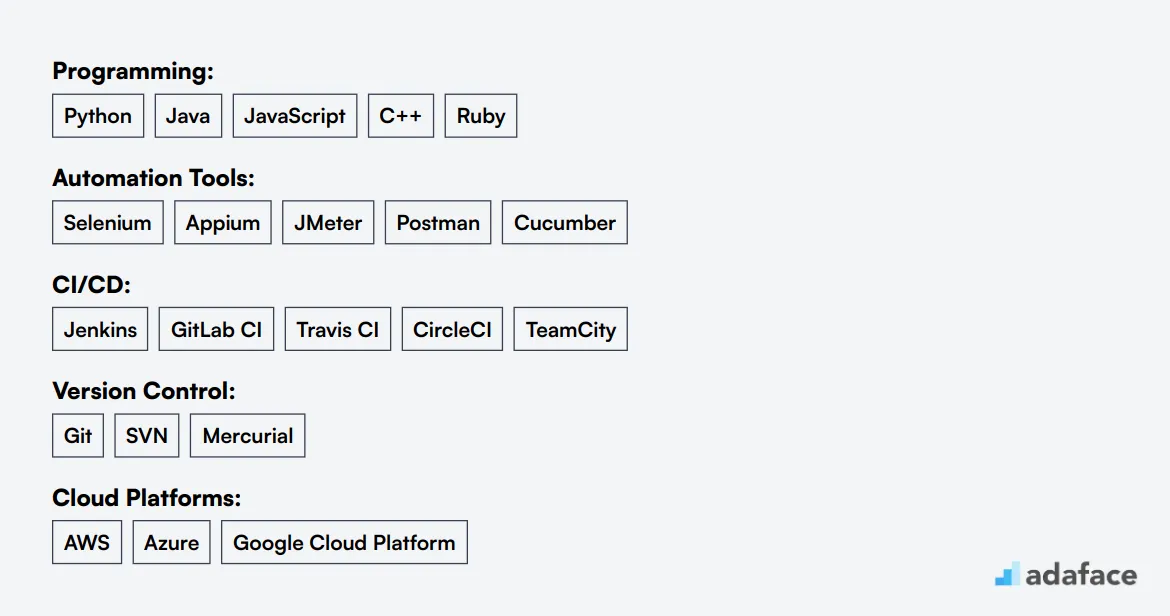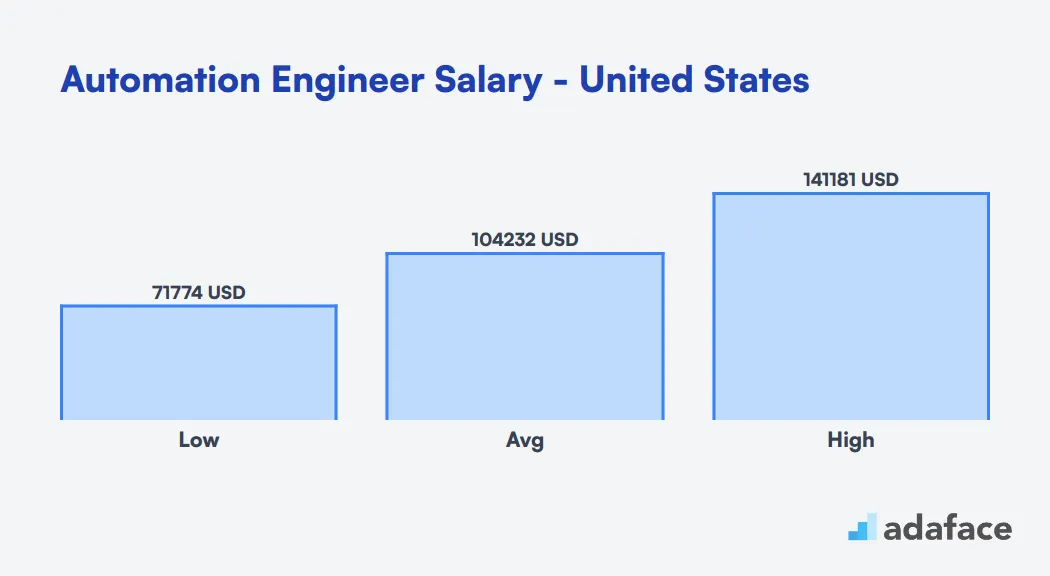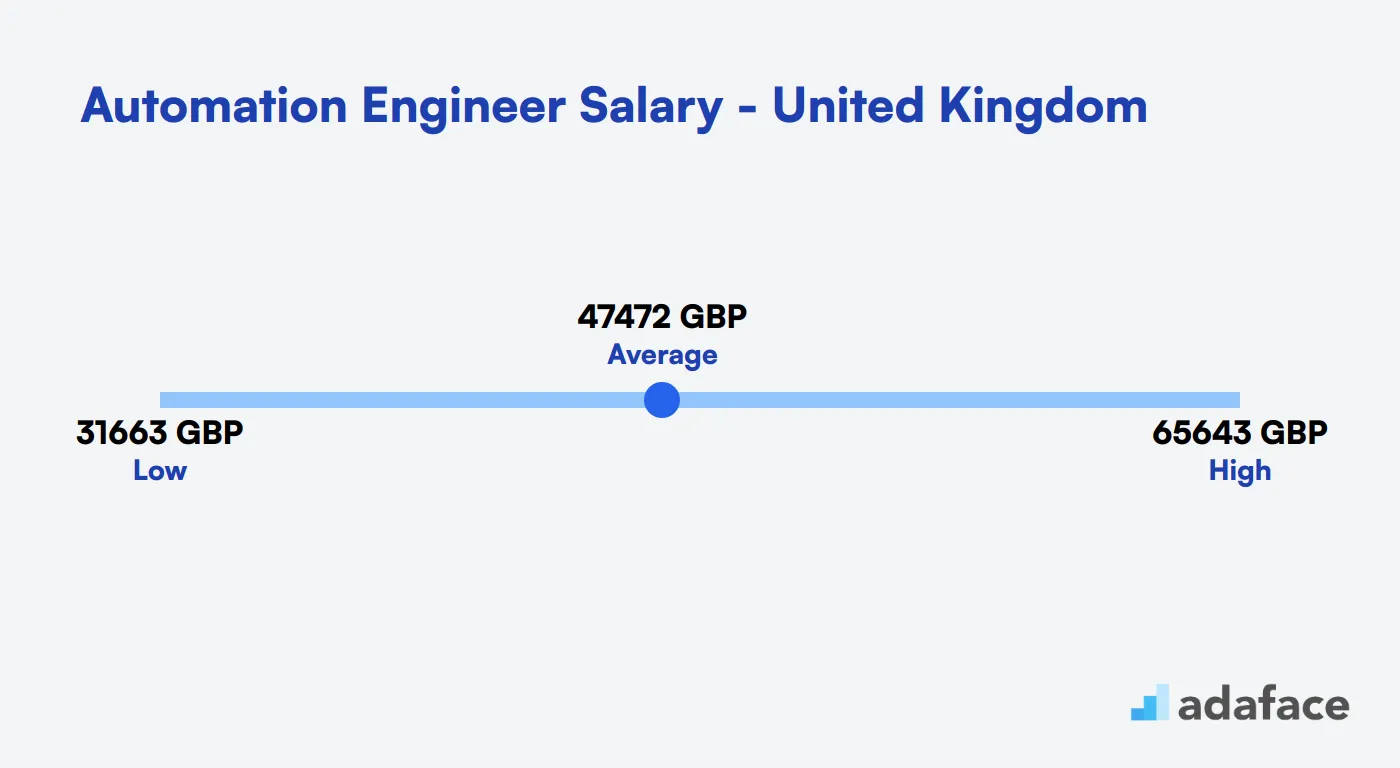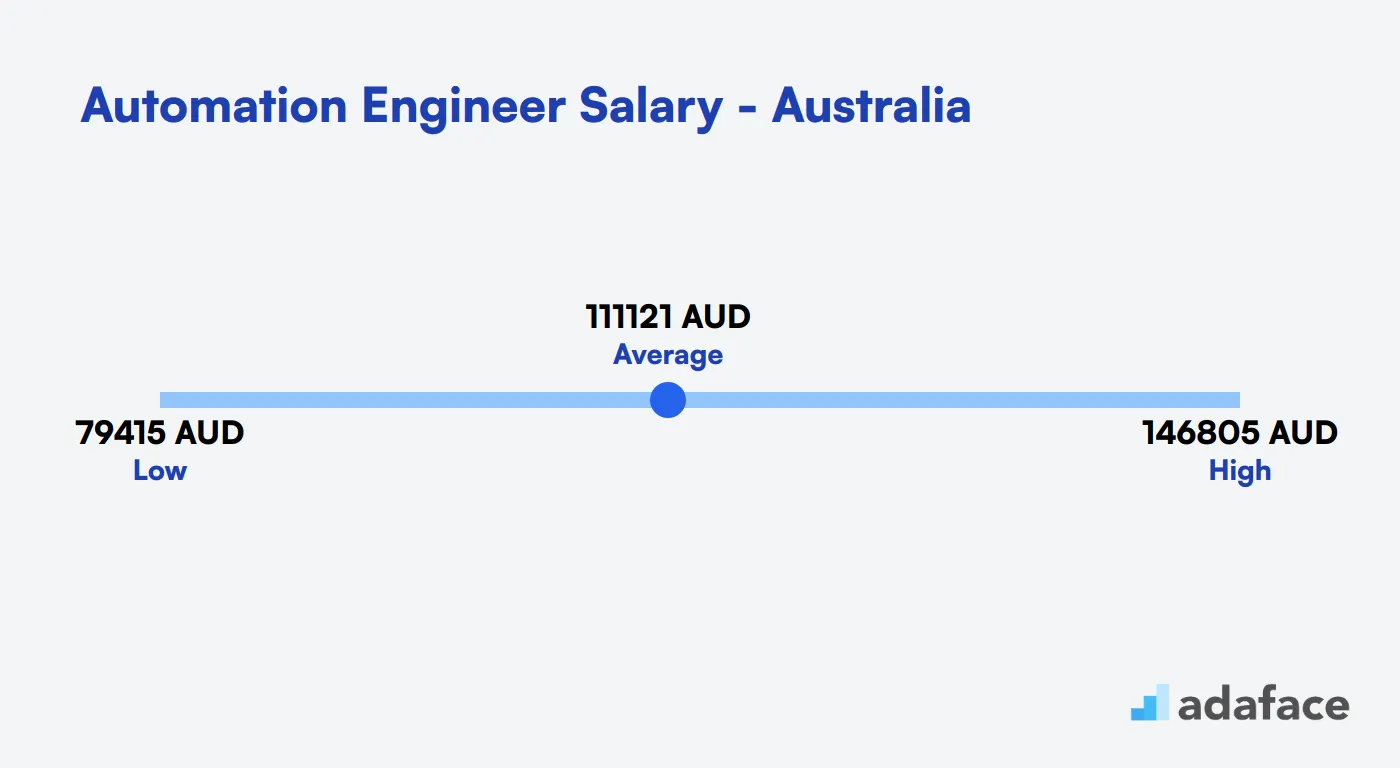In today's fast-paced tech environment, hiring an automation engineer is crucial for any company looking to optimize processes and boost productivity. Many businesses often struggle to understand the depth of skills required and the significance of aligning these skills with their organizational goals. Choosing the right automation engineer means finding someone who not only brings technical expertise but also fits well with your team dynamics.
This article offers a comprehensive guide to hiring an automation engineer, covering everything from crafting the perfect job description to conducting effective technical interviews. We'll delve into platforms to find top talent and the right skills tests to screen your candidates effectively.
Table of contents
What does an Automation Engineer do?
An Automation Engineer designs, develops, and implements automated systems and processes to improve efficiency and productivity in various industries. They work on creating software tools, scripts, and frameworks that automate repetitive tasks, test applications, and streamline workflows.
The day-to-day responsibilities of an Automation Engineer include:
- Developing and maintaining automation scripts and tools
- Collaborating with cross-functional teams to identify automation opportunities
- Conducting automated testing for software applications
- Troubleshooting and debugging automation issues
- Monitoring and optimizing automated processes
- Staying updated with the latest automation technologies and best practices
Hiring Process for Automation Engineer Role
The process of hiring an Automation Engineer can seem intricate but breaking it down into manageable steps makes it smoother. Typically, this process can take around 4-6 weeks from job posting to offer acceptance.
- Crafting the Job Description: Start by drafting a clear and detailed automation engineer job description. Make sure to include the necessary skills, experience, and responsibilities to attract the right candidates.
- Sourcing Candidates: Use relevant job boards and professional networks to post your job listing. Expect an influx of resumes within a few days.
- Screening Resumes: Shortlist resumes based on the skills and experience that match your requirements. This might take about a week.
- Assessing Skills: Utilize skill assessments or coding tests to evaluate your candidates' technical capabilities. This helps in identifying the right talent efficiently.
- Conducting Interviews: After the assessments, invite the shortlisted candidates for interviews. This includes both technical and behavioral rounds.
- Finalizing and Offering: Select the best candidate and proceed with the offer. Ensure you have a competitive package to secure your candidate of choice.
Overall, the hiring process is structured to identify the most qualified candidates effectively. As you move through these steps, stay organized and maintain communication with the candidates. Let's now explore each phase in greater detail to ensure a seamless hiring experience.
Skills and Qualifications to Look for in an Automation Engineer
When hiring an Automation Engineer, creating the right candidate profile can be tricky. Often, recruiters might overlook the distinction between what's necessary and what's a nice-to-have. To build a strong team, clearly define and prioritize which skills and qualifications are needed for your unique setup.
Here are some common requirements and preferences to consider when looking for an Automation Engineer:
- Required Skills and Qualifications:
- Bachelor's degree in Computer Science, Engineering, or related field
- Proficiency in at least one programming language (e.g., Python, Java, C++)
- Experience with test automation frameworks and tools
- Strong understanding of the software development life cycle (SDLC)
- Excellent problem-solving and analytical skills
- Preferred Skills and Qualifications:
- Experience with CI/CD pipelines and tools (e.g., Jenkins, GitLab CI)
- Knowledge of cloud platforms (AWS, Azure, or GCP)
- Familiarity with containerization technologies (Docker, Kubernetes)
- Experience with version control systems (e.g., Git)
- Agile methodology experience
To further streamline the hiring process, consider using skills assessment tools to evaluate candidates effectively.
| Required skills and qualifications | Preferred skills and qualifications |
|---|---|
| Bachelor's degree in Computer Science, Engineering, or related field | Experience with CI/CD pipelines and tools (e.g., Jenkins, GitLab CI) |
| Proficiency in at least one programming language (e.g., Python, Java, C++) | Knowledge of cloud platforms (AWS, Azure, or GCP) |
| Experience with test automation frameworks and tools | Familiarity with containerization technologies (Docker, Kubernetes) |
| Strong understanding of software development life cycle (SDLC) | Experience with version control systems (e.g., Git) |
| Excellent problem-solving and analytical skills | Agile methodology experience |
How to write an Automation Engineer job description?
Once you have a candidate profile ready, the next step is to capture that information in the job description to attract the right candidates. A well-crafted job description is key to drawing in skilled automation engineers who will meet your needs.
- Highlight key responsibilities and impact: Clearly lay out the specific tasks automation engineers will handle, such as developing test automation frameworks or improving CI/CD pipelines. This helps candidates understand their potential contributions to your projects and the organization at large.
- Balance technical skills with soft skills: While it's important to list technical skills like proficiency in scripting languages or experience with automation tools, don’t forget to emphasize soft skills like teamwork and communication. This balance will attract candidates who can work well in collaborative environments.
- Showcase unique selling points: Mention what makes your company and this role attractive. Whether it's innovative projects, opportunities for advancement, or a friendly work culture, these details can differentiate your job posting from others and draw in top talent. For a structured approach, refer to a detailed automation engineer job description.
Top Platforms to Source Automation Engineers
Now that you have a well-crafted job description, it's time to list your opening on job platforms to attract potential candidates. The right platform can significantly impact the quality and quantity of applications you receive. Let's explore some top sites for finding automation engineering talent.
Ideal for finding experienced professionals for full-time positions. Offers advanced search filters to target specific skills and locations.

Indeed
A popular general job board with a large pool of candidates, suitable for posting full-time job listings.

Upwork
Best for hiring freelancers for short-term projects. Offers a variety of skilled professionals ready for immediate hire.

Beyond these major platforms, there are several other options to consider. Specialized tech job boards can help you target professionals with specific skills. Remote work platforms are great for tapping into a global talent pool. Remember to tailor your approach based on your specific needs and the type of automation engineer you're seeking.
Keywords to Look for in Automation Engineer Resumes
Resume screening is a key step in finding the right Automation Engineer. It helps you quickly identify candidates with the skills and experience you need, saving time in the hiring process.

When manually screening resumes, focus on key technical skills and experience. Look for programming languages like Python or Java, test automation frameworks, and experience with CI/CD tools. Don't forget soft skills like problem-solving and analytical thinking.
AI tools can streamline your resume screening process. You can use ChatGPT or Claude with a custom prompt to analyze resumes based on your specific criteria. This can help you quickly assess multiple candidates and identify top prospects.
Here's a sample prompt for AI-assisted resume screening:
TASK: Screen resumes for Automation Engineer role
INPUT: Resumes
OUTPUT:
- Candidate name and email
- Matching keywords
- Overall score (1-10)
- Shortlist recommendation (Yes/No/Maybe)
KEYWORDS:
- Programming: Python, Java, JavaScript
- Automation: Selenium, Appium, JMeter
- CI/CD: Jenkins, GitLab CI
- Cloud: AWS, Azure, GCP
- Version Control: Git
Customize this prompt with your specific requirements and preferred skills for best results.
Recommended Skills Tests to Screen Automation Engineers
Skills tests are highly recommended for hiring automation engineers as they help validate the technical competencies and fit of potential candidates swiftly and reliably. These tests provide insights into the candidate's hands-on expertise, ensuring they can deliver on the role's demands.
Use Java skills tests to evaluate candidates' proficiency in Java, a language widely used in automation frameworks. Mastery of Java ensures that the engineer can contribute to scripting and maintaining robust automation testing environments.
The Selenium online test is perfect for gauging knowledge of the Selenium framework. This test is suitable for checking candidates' abilities to create and execute automated web tests, a vital aspect of automation engineering.
Assessing Python skills is crucial for automation engineers who might need to write scripts for testing or automation tasks. This test measures candidates' understanding of Python, a popular language in automation scripting.
Utilize the QA Engineer Test to explore the breadth of a candidate’s testing skills. This test assesses knowledge in various testing methodologies and practices, ensuring the engineer can contribute to high-quality software delivery.
For a more in-depth evaluation of deployment and integration capabilities, the Ansible and Jenkins Online Test can be employed. This test checks the candidate's understanding of automation in deployment pipelines, a critical competency for continuous integration and continuous delivery environments.
Structuring Technical Interviews for Automation Engineers
Once candidates pass the initial skills tests, it's time for technical interviews to assess their hard skills in-depth. While skills tests are great for initial screening, technical interviews help identify the best-fit candidates for the role. Let's look at some sample interview questions to evaluate Automation Engineers effectively.
Consider asking: 'How do you approach test case prioritization?', 'Explain your experience with CI/CD pipelines', 'What strategies do you use for handling flaky tests?', 'How do you ensure test data integrity?', and 'Describe a challenging automation project you've worked on'. These questions help assess the candidate's practical experience, problem-solving skills, and understanding of automation best practices.
How much does it cost to hire an Automation Engineer?
Hiring an Automation Engineer can vary significantly depending on the location and experience. In the United States, you might find salaries ranging from $71,775 to $141,182, with a median of around $100,664. In Australia, the range is approximately AUD 79,415 to AUD 146,805, with an average salary of AUD 111,122. Understanding these ranges helps in crafting competitive offers during recruitment.
Automation Engineer salary United States
In the United States, Automation Engineers earn a median salary of approximately $100,664 annually. Salaries can range from about $71,775 on the lower end to $141,182 on the higher end, depending on factors such as location and experience. Notably, areas like Carlsbad, CA, and San Francisco, CA, tend to offer competitive salaries on the higher end of the scale.

Automation Engineer Salary in the United Kingdom
The average salary for an Automation Engineer in the United Kingdom is approximately £45,000 per year. Entry-level positions may start around £30,000, while experienced professionals can earn up to £70,000 or more, depending on their skills and the complexity of the projects they handle.

Automation Engineer Salary in Australia
The average salary for an Automation Engineer in Australia is around AUD 111,122. Salaries can vary significantly across different regions, with figures ranging from approximately AUD 79,415 at the lower end to AUD 146,805 at the high end.
For instance, in Perth, the average salary is approximately AUD 145,500, while in Sydney, it averages around AUD 113,509. Understanding these salary ranges can help you set competitive offers when hiring.

What are the ranks of Automation Engineers?
Automation engineering is a field where roles can often be misunderstood due to overlap with other tech positions. However, there’s a clear hierarchy within automation engineering that helps differentiate roles and responsibilities.
- Junior Automation Engineer: Often an entry-level position, a junior automation engineer works under the guidance of senior team members. They assist in test script creation, debugging issues, and maintaining documentation to learn the nuances of automation tools and frameworks.
- Automation Engineer: With some experience under their belt, an automation engineer actively participates in designing and implementing automation frameworks. They are responsible for writing and executing test scripts and collaborating with the development team to ensure quality standards.
- Senior Automation Engineer: With an in-depth understanding of automation tools and processes, senior automation engineers oversee project automation strategies. They lead the team in tackling complex automation challenges and mentor junior engineers, ensuring seamless execution of automation projects. Refer to the automation engineer job description for more details on their responsibilities.
- Lead Automation Engineer: This role involves strategic planning and managing the overall automation efforts within a project or organization. Lead automation engineers drive the team towards achieving automation milestones and work closely with stakeholders to align automation goals with business objectives.
Hire the Best Automation Engineers for Your Team
We've covered the key aspects of hiring Automation Engineers, from understanding their role to crafting job descriptions and conducting interviews. The hiring process can be complex, but focusing on the right skills and qualifications is crucial for finding the perfect fit.
If there's one key takeaway, it's the importance of using well-crafted job descriptions and skills tests to make your hiring process more accurate. By implementing these strategies, you'll be better equipped to identify and attract top Automation Engineering talent that aligns with your organization's needs.
QA Engineer Test
FAQs
An automation engineer designs, programs, simulates, and tests automated machinery and processes to complete tasks efficiently and effectively.
Platforms like LinkedIn, GitHub, Stack Overflow, and specialized recruitment sites are great for finding skilled automation engineers.
Key skills to look for include programming, knowledge of automated testing tools, process optimization, and strong analytical abilities.
To write a compelling job description, clearly outline the role's responsibilities, required skills, experience, and the impact they will have on your organization. Consider using templates and resources available online.
Include problem-solving questions, technical assessments related to automation tools, and situational questions to gauge the candidate’s analytical and troubleshooting skills.
Use skills assessments, coding tests, and real-world problem-solving scenarios to evaluate a candidate’s technical proficiency.
Avoid common pitfalls such as overly focusing on technical skills while neglecting cultural fit, not having a structured interview process, and failing to clearly define project expectations.

40 min skill tests.
No trick questions.
Accurate shortlisting.
We make it easy for you to find the best candidates in your pipeline with a 40 min skills test.
Try for freeRelated posts
Free resources



